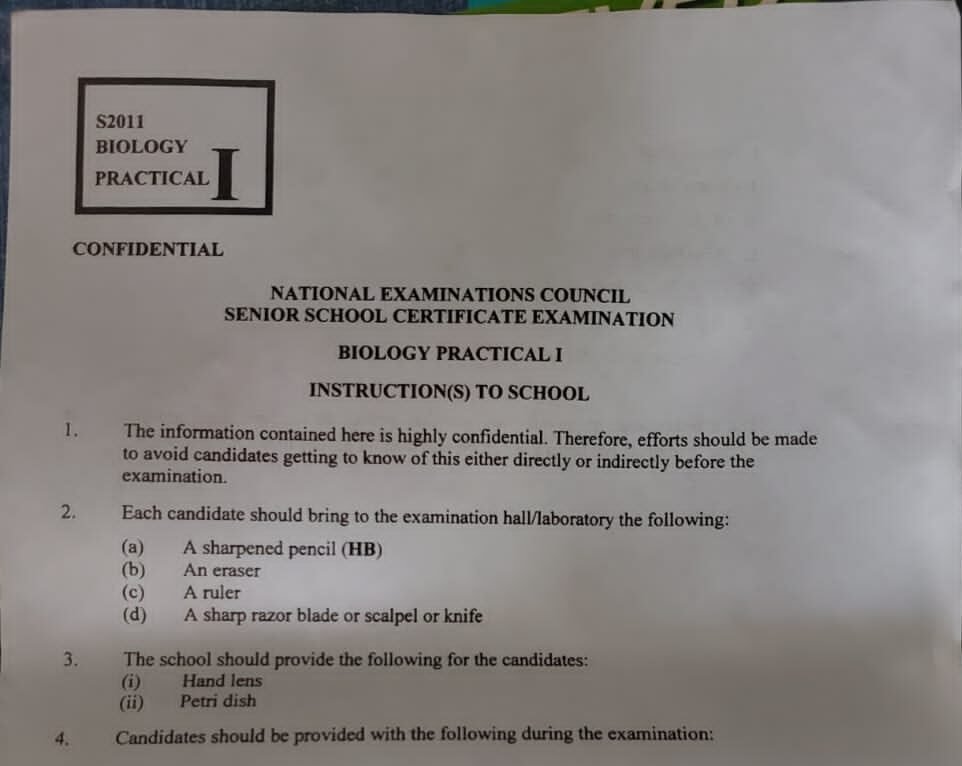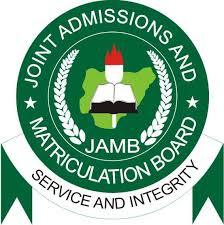WAEC GCE Agric: The West African Examinations Council (WAEC) conducts the General Certificate Examination (GCE) for candidates wishing to complete their secondary education. Among the diverse subjects offered, Agriculture stands out due to its significance in both academic and real-world applications. For many students, however, practical sessions can be challenging.
This is where the WAEC GCE Agric alternative to practical syllabus comes into play, providing a structured approach for students who may not have access to practical facilities.
WAEC GCE Agric Syllabus
The WAEC GCE Agriculture syllabus is designed to equip students with the necessary knowledge and skills in agricultural science. It covers a broad range of topics, including crop production, animal husbandry, soil science, and agricultural economics. The practical component, often daunting for students, is essential for hands-on learning.
However, the alternative to practical syllabus allows students to demonstrate their understanding of agricultural principles without needing direct access to physical resources. This alternative caters to students in urban settings or those facing logistical challenges.
Key Components of the Alternative to Practical Syllabus
- Theoretical Knowledge: The alternative syllabus emphasizes understanding theoretical concepts. Students are expected to grasp key principles of agriculture, including plant biology, soil fertility, and pest management.
- Case Studies: Real-world applications and case studies are integrated into the curriculum. Students analyze various agricultural scenarios, developing critical thinking skills and the ability to apply theoretical knowledge to practical situations.
- Research Projects: Students may be required to undertake research projects related to agricultural practices, challenges, and innovations. This promotes independent learning and deepens their understanding of agricultural issues.
- Field Trips and Virtual Resources: While hands-on experience is limited, students can engage in field trips to local farms or utilize virtual resources and simulations to gain insights into agricultural practices.
- Examinations and Evaluations: The assessment methods for the alternative syllabus include written examinations, project reports, and presentations. This multi-faceted approach ensures that students can showcase their knowledge effectively.
Benefits of the Alternative to Practical Syllabus
Accessibility
One of the primary advantages of the WAEC GCE Agric alternative to practical syllabus is its accessibility. Students who may not have access to farms or agricultural facilities can still succeed. This inclusivity allows a broader range of students to pursue their interests in agriculture.
Flexibility in Learning
The alternative syllabus also provides flexibility. Students can learn at their own pace, dedicating time to areas where they may need more assistance. This self-directed approach fosters a deeper understanding of the subject matter.
Preparation for Future Careers
Understanding agricultural concepts is crucial for students interested in pursuing careers in agronomy, veterinary science, or agricultural economics. The alternative syllabus equips them with foundational knowledge and skills that are applicable in various sectors.
Encouragement of Innovation
The focus on research and case studies encourages students to think critically about agricultural challenges. This can lead to innovative solutions and new approaches to farming and sustainability, which are essential in today’s rapidly changing world.
How to Succeed in the WAEC GCE Agric Alternative to Practical Syllabus
1. Engage with the Curriculum
Students should actively engage with the syllabus, ensuring they understand each topic thoroughly. Regular revision and study sessions will help reinforce this knowledge.
2. Utilize Available Resources
There are numerous resources available for students, including textbooks, online courses, and agricultural journals. Utilizing these resources can enhance their understanding of complex concepts.
3. Participate in Group Studies
Group studies can be incredibly beneficial. Discussing topics with peers allows students to learn from one another and clarify doubts. This collaborative approach can lead to a better grasp of the material.
4. Seek Guidance from Teachers
Teachers play a crucial role in guiding students. Regularly seeking feedback and assistance will help students stay on track and address any areas of difficulty.
5. Practice with Past Questions
Familiarizing oneself with past examination questions is key. This practice helps students understand the exam format and the types of questions they may encounter.
Study Materials for 2024 WAEC GCE Agricultural Science Questions and Answers
Preparing for the 2024 WAEC GCE Agricultural Science exam requires access to quality study materials. Here are key resources to help you succeed:
- Recommended Textbooks: Start with textbooks that align with the WAEC syllabus. Titles like “Agricultural Science for West Africa” by A. O. Alabi and “Essential Agricultural Science” by A. A. Adewale are great options.
- Past Questions: Reviewing past WAEC GCE Agricultural Science questions is crucial. It familiarizes you with the exam format and question types. Many educational websites and bookstores offer compilations of past questions.
- Online Resources: Websites like WAEC’s official page and educational platforms provide sample questions, study guides, and video tutorials. These resources can enhance your understanding of complex topics.
- Study Groups: Join or form study groups with peers. Collaborative learning can help clarify difficult concepts and provide motivation.
- Revision Notes: Create concise revision notes for each topic. Summarizing key points helps reinforce learning and aids in quick revision before the exam.
WAEC GCE Agricultural Science 2024 Exam Details
- Exam Dates: The exams are scheduled to take place in November and December 2024. Specific dates will be provided on the official WAEC timetable.
- Duration: The exam typically lasts for 2 to 3 hours, depending on the paper format.
- Structure: The exam consists of multiple-choice questions, short answer questions, and essay-type questions. Ensure you are familiar with the different sections and allocate time accordingly.
- Assessment Criteria: The grading will focus on theoretical knowledge, application of agricultural concepts, and the ability to analyze case studies.
How to Subscribe for WAEC GCE Agric Science 2nd Series Questions and Answers
Subscribing for the WAEC GCE Agric Science 2nd Series Questions and Answers is a straightforward process:
- Visit Educational Websites: Go to reputable educational platforms or forums that offer subscription services for WAEC materials.
- Choose Subscription Plan: Most platforms provide different subscription plans. Select one that suits your needs, whether you want access for a single exam series or an entire academic year.
- Create an Account: You will need to register on the platform. Fill out the required information, including your email address and password.
- Payment: After selecting your plan, proceed to payment. Various payment methods are usually accepted, including bank transfers, credit cards, and mobile payments.
- Access Materials: Once your payment is processed, you will receive access to the questions and answers. Ensure you download or bookmark important materials for easy access.
2025/2026 WAEC GCE Agricultural Science Questions and Answers (2nd Series)
For students preparing for the 2025/2026 WAEC GCE Agricultural Science exams, the following resources will be essential:
- Focus on Current Syllabus: Ensure your study materials align with the most recent WAEC syllabus for Agricultural Science. This will help you cover all necessary topics.
- Updated Past Questions: Look for platforms that offer updated past questions for the 2025/2026 series. This will help you practice with relevant content.
- Mock Exams: Participate in mock exams organized by educational institutions or online platforms. This will help you gauge your preparedness and identify areas needing improvement.
- Regular Updates: Stay informed about any changes in the examination format or syllabus by regularly checking the WAEC official website and trusted educational forums.
WAEC GCE Agric Alternative to Practical Questions
The WAEC GCE Agric alternative to practical questions are designed to assess students’ understanding of agricultural concepts without requiring direct hands-on experience. Here are some common types of questions you may encounter:
- Theoretical Questions: These questions often ask students to explain agricultural principles, such as soil fertility management or pest control methods.
- Case Studies: You might be presented with a scenario related to agricultural practices and asked to analyze it. This tests your ability to apply theoretical knowledge to real-world situations.
- Research-Based Questions: Expect questions that require you to discuss recent agricultural innovations or research findings. This encourages independent learning and critical thinking.
- Short Answer Questions: These may include definitions, explanations, or brief descriptions of agricultural terms and concepts.
- Essay Questions: Some questions may require comprehensive responses, where you discuss the importance of agriculture in economic development or evaluate the impact of climate change on farming practices.
Conclusion
The WAEC GCE Agric alternative to practical syllabus serves as a valuable resource for students pursuing agricultural education. By emphasizing theoretical knowledge, case studies, and research, it provides an inclusive and flexible learning environment. Students can thrive in their studies, gaining essential skills and knowledge that will serve them well in their future careers.
By following the guidelines laid out in this article, students can maximize their success in the WAEC GCE Agriculture examination, despite the challenges they may face regarding practical experience.






